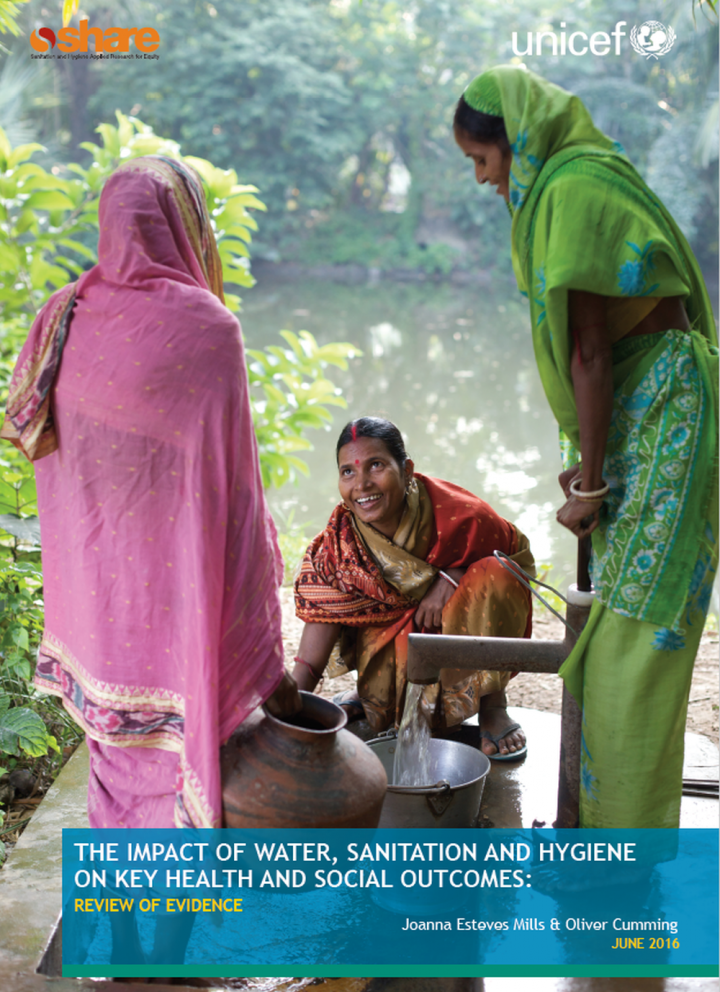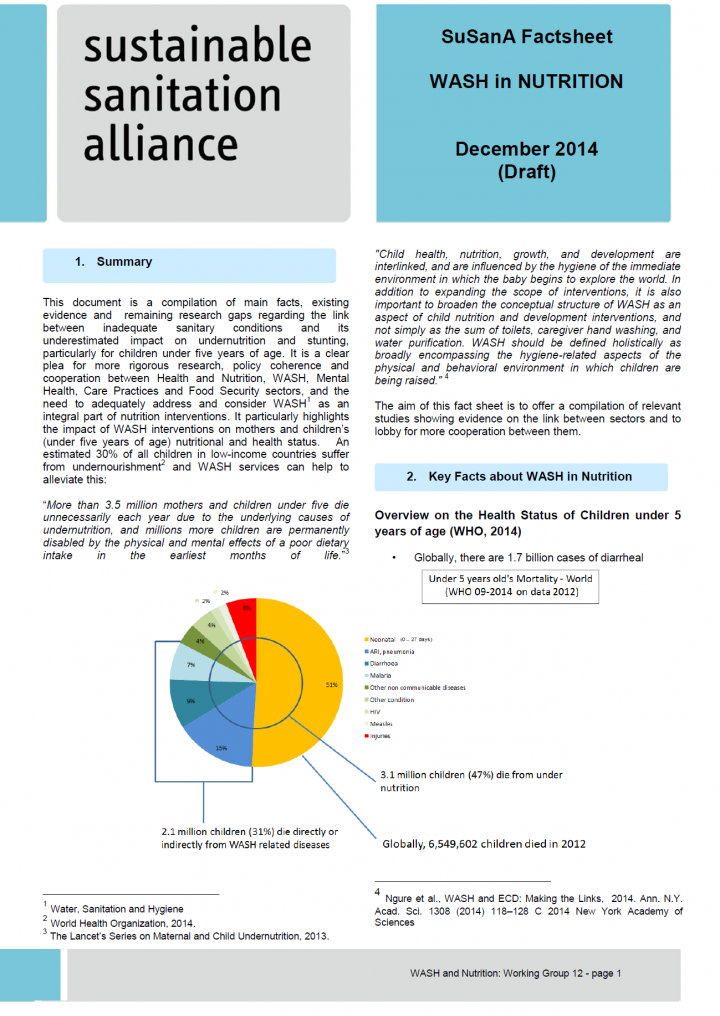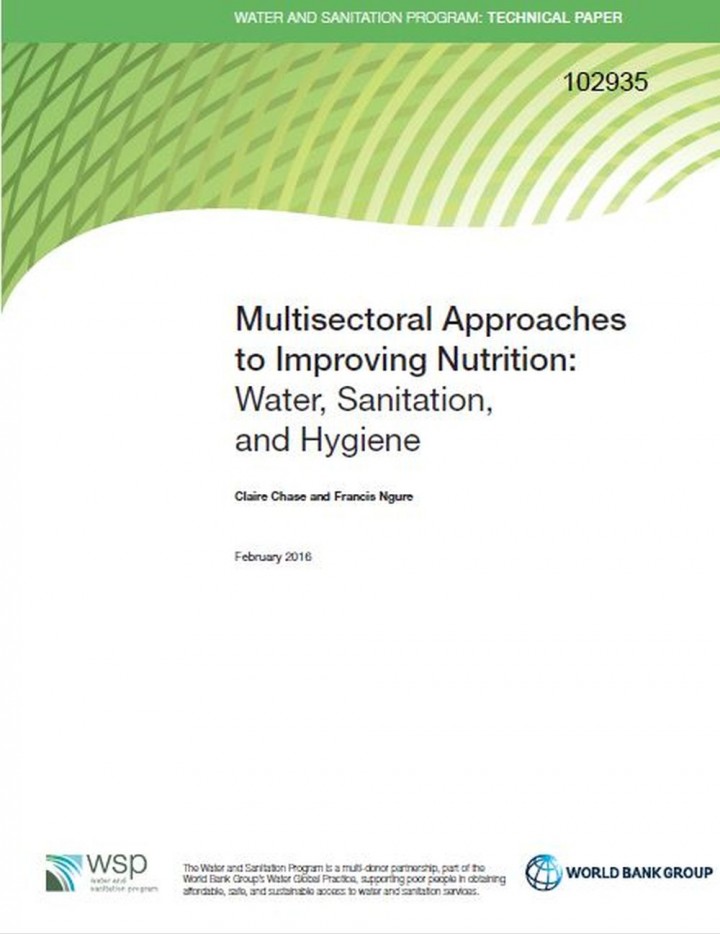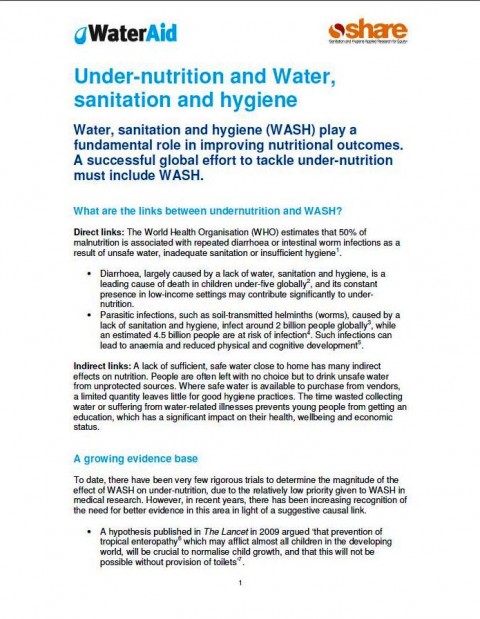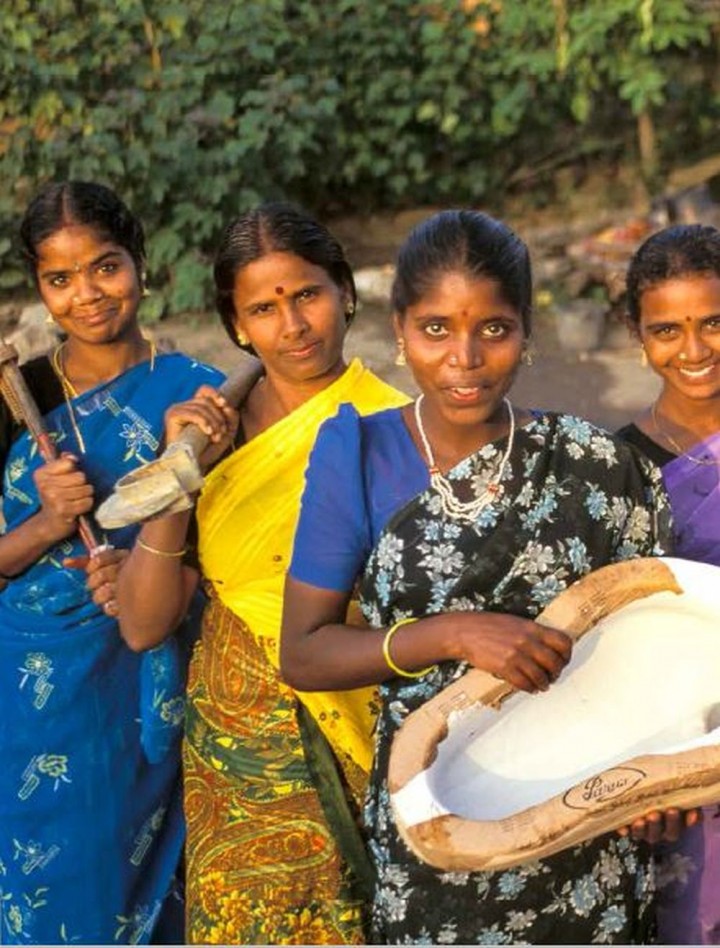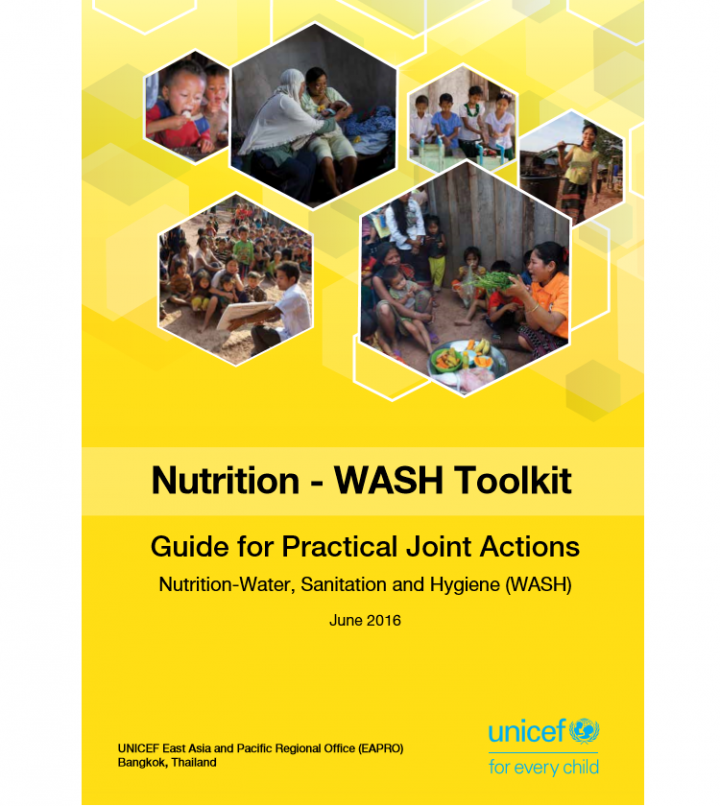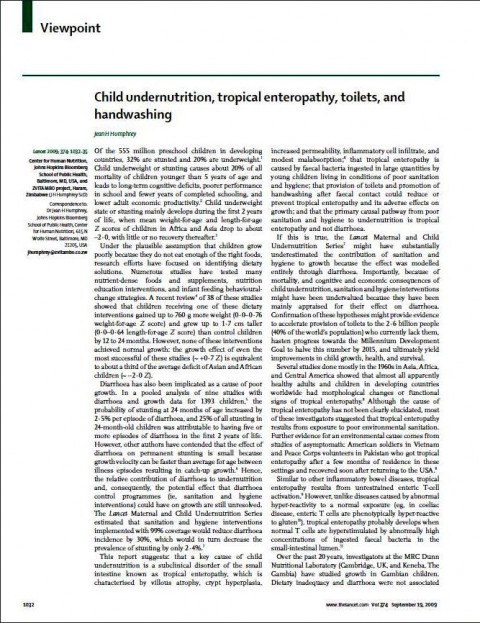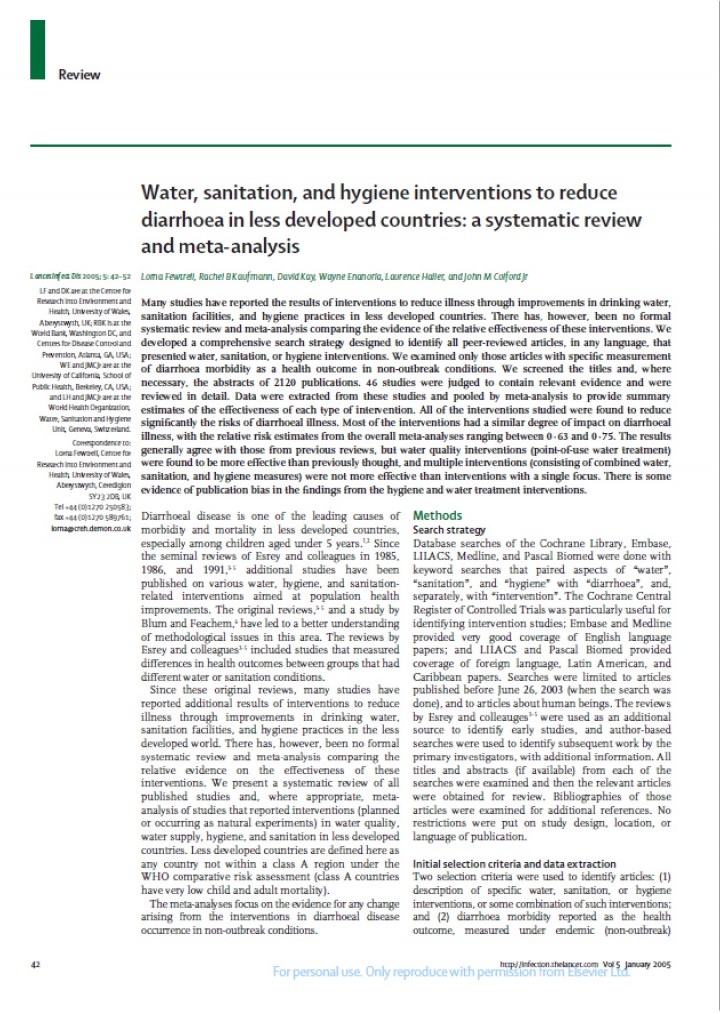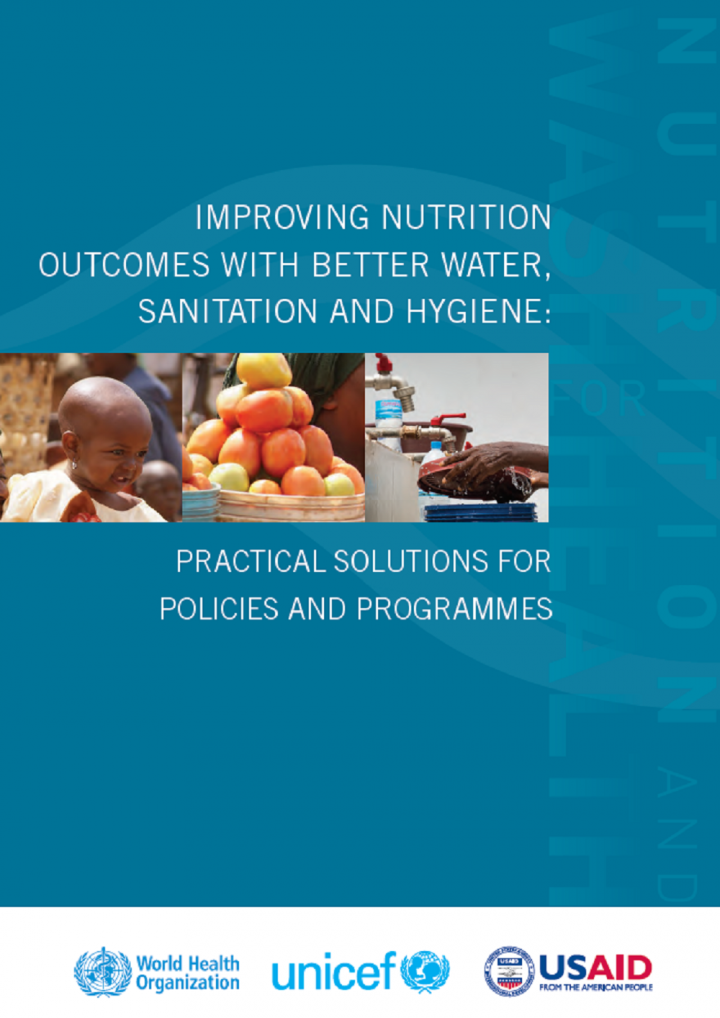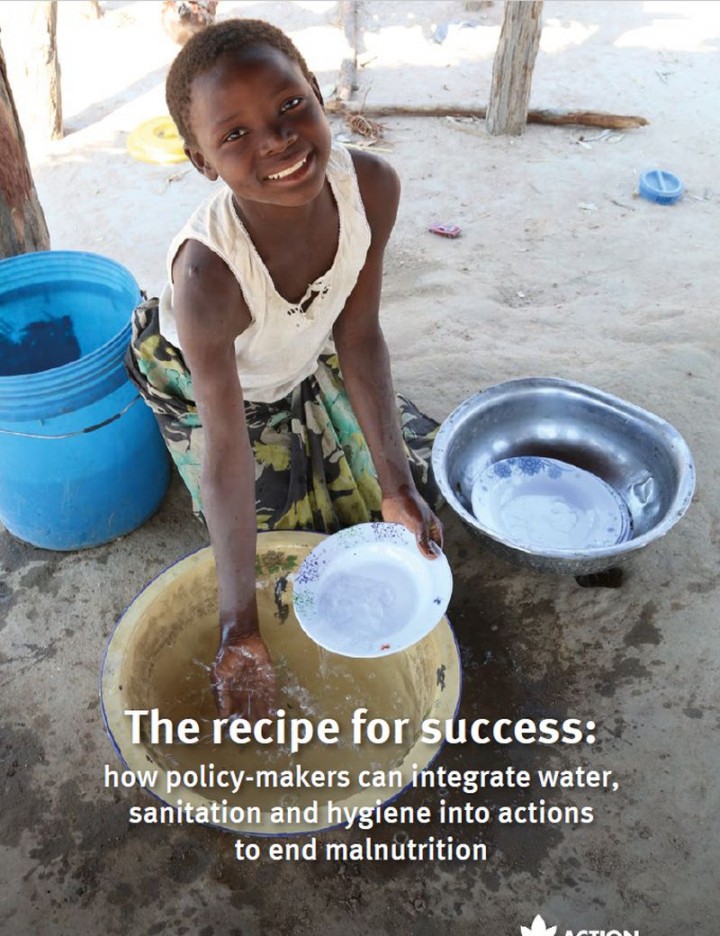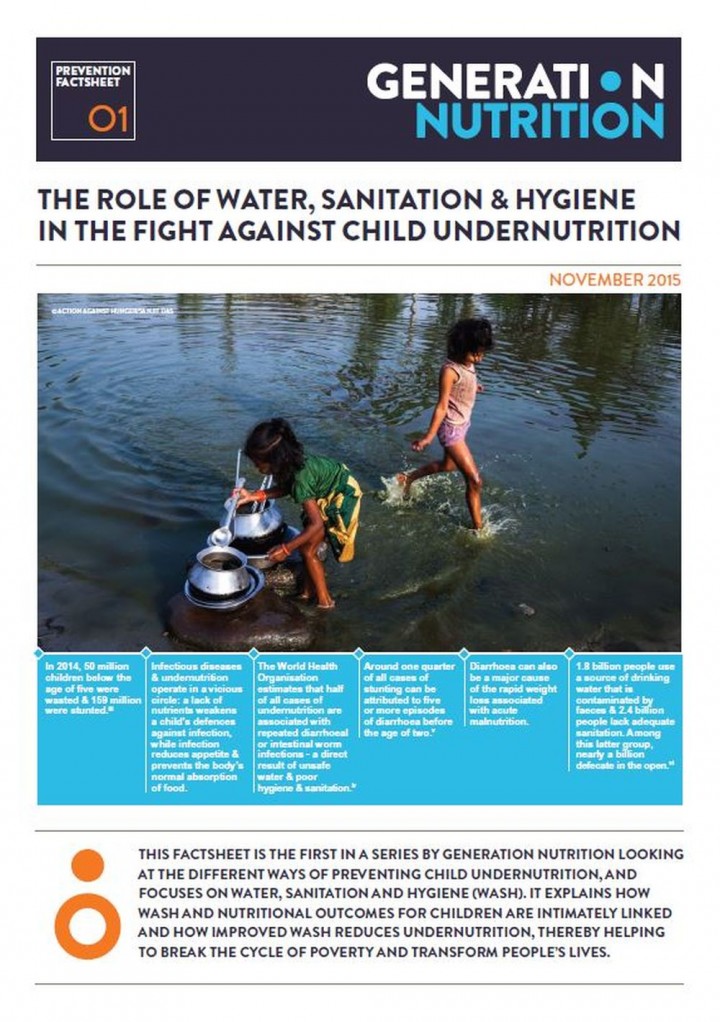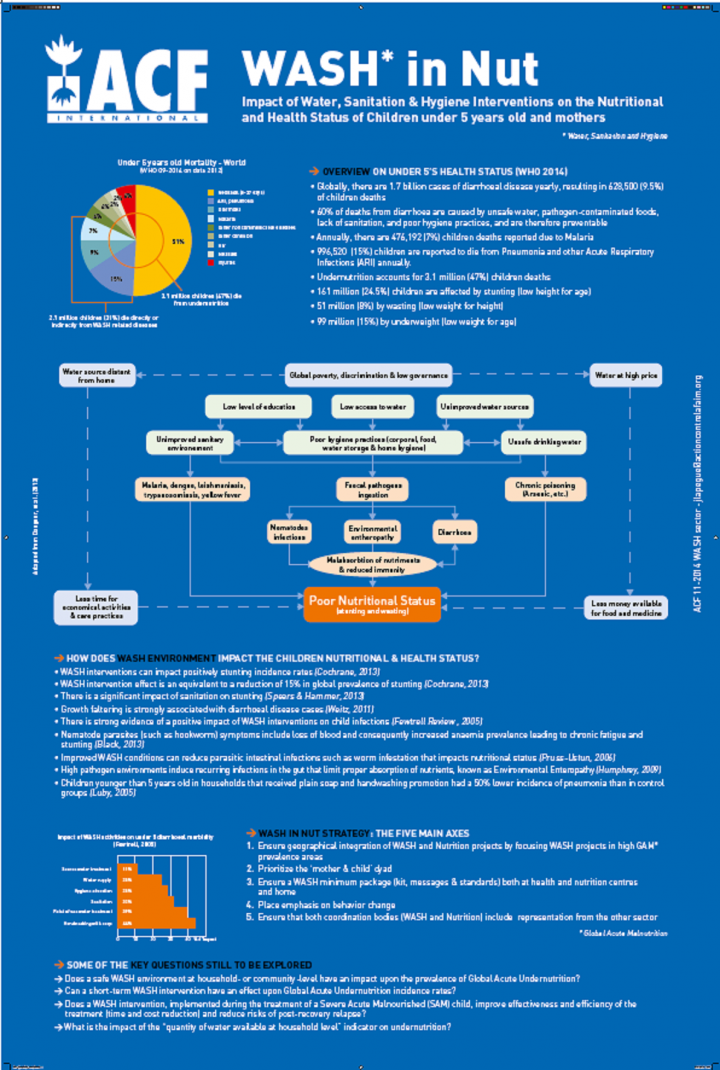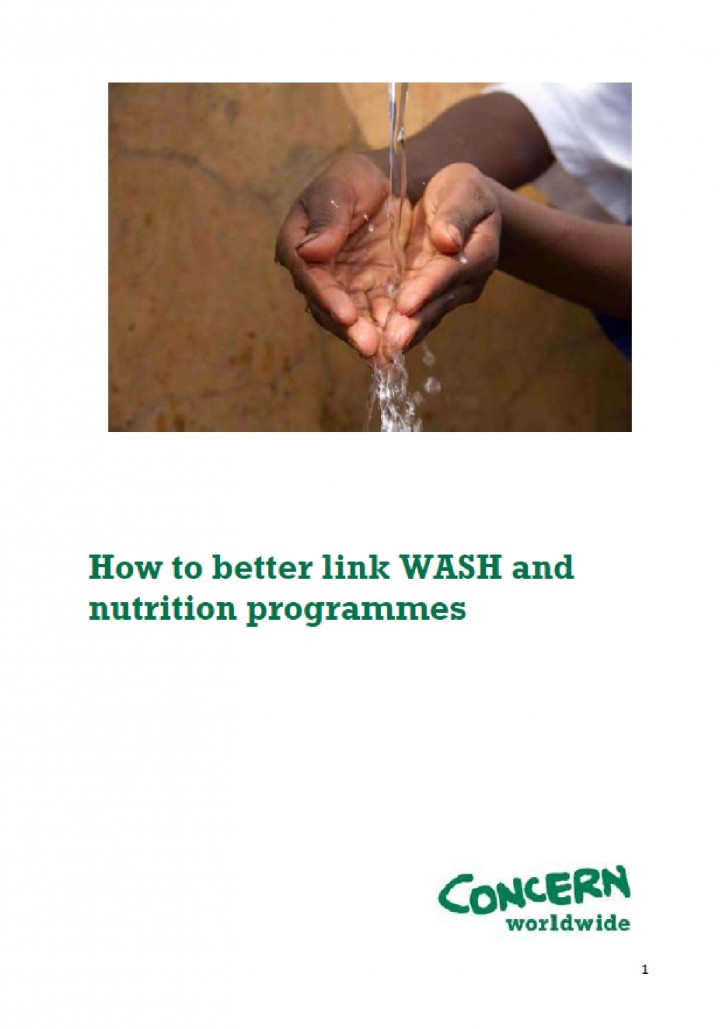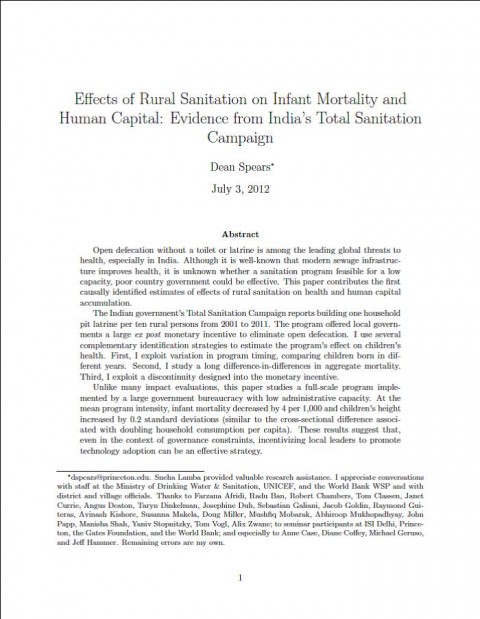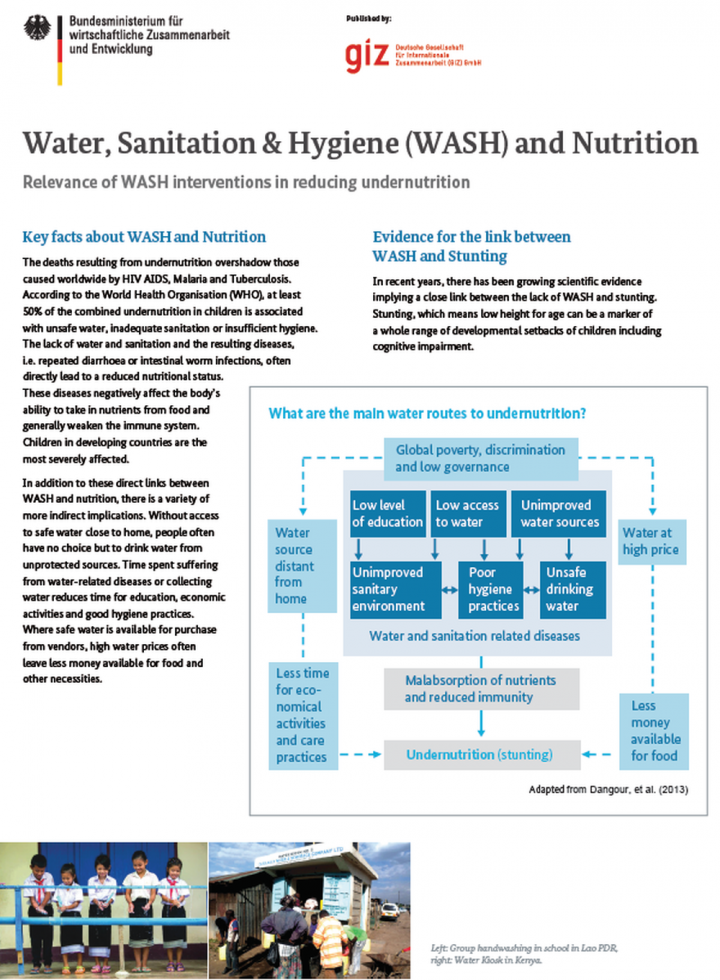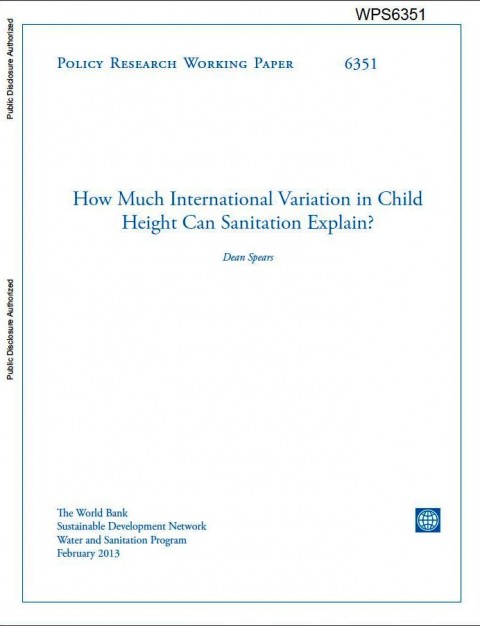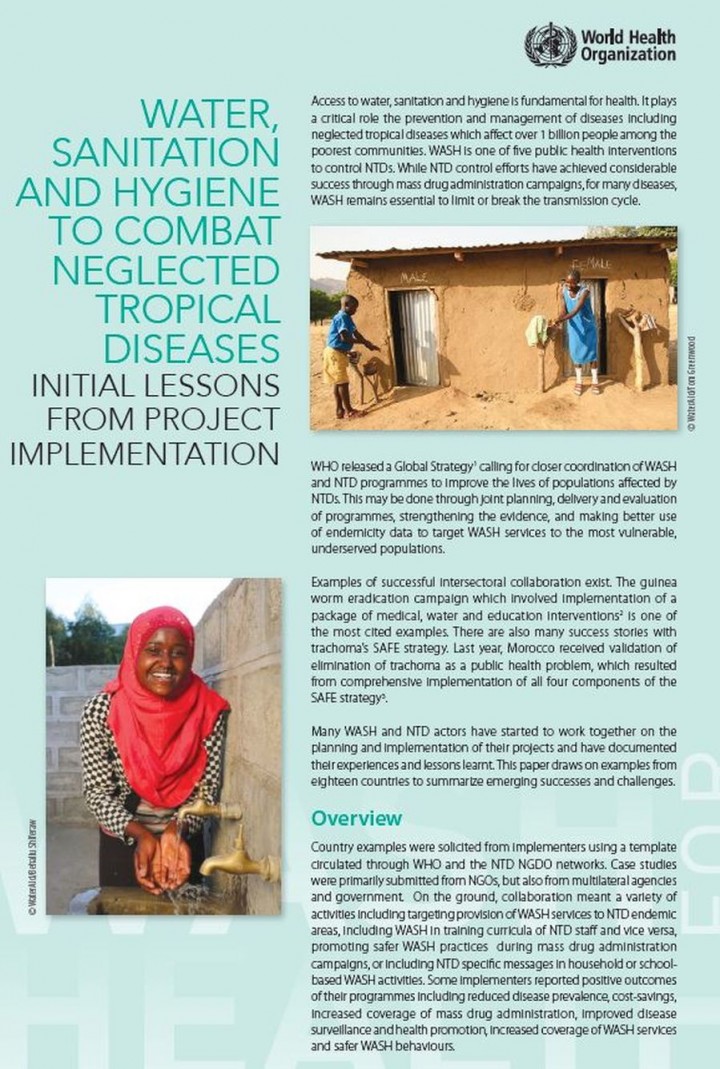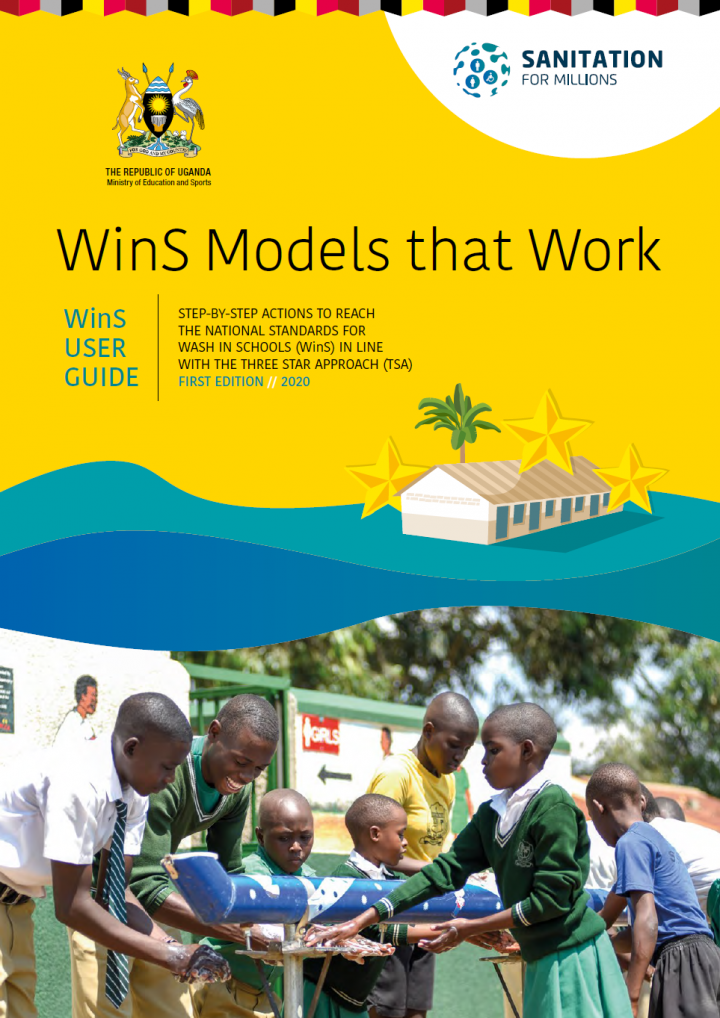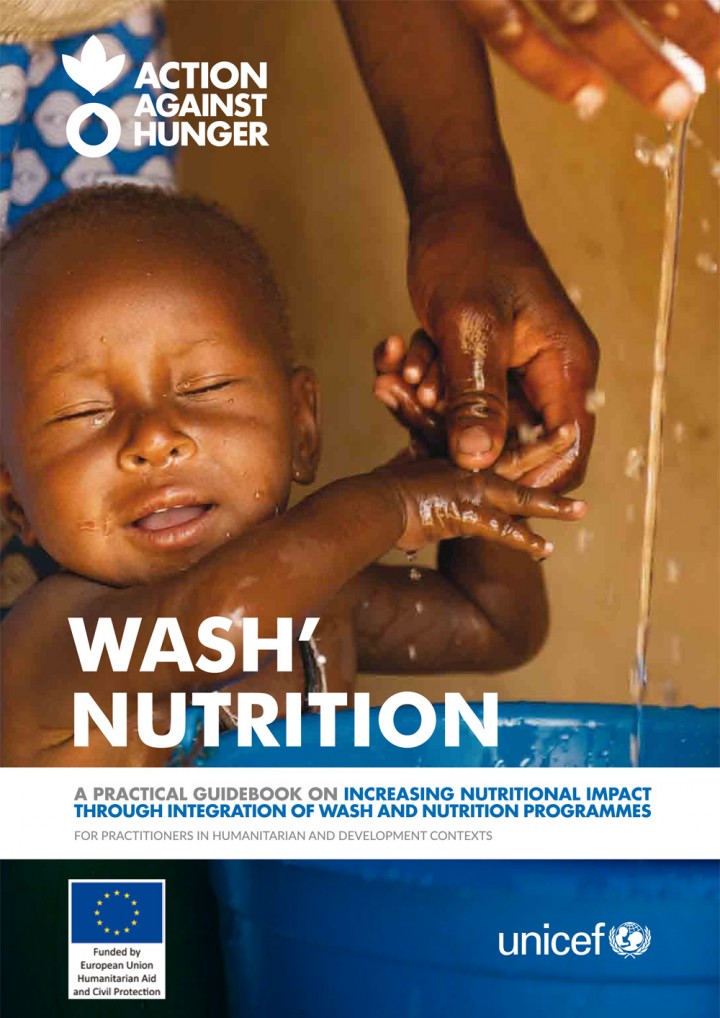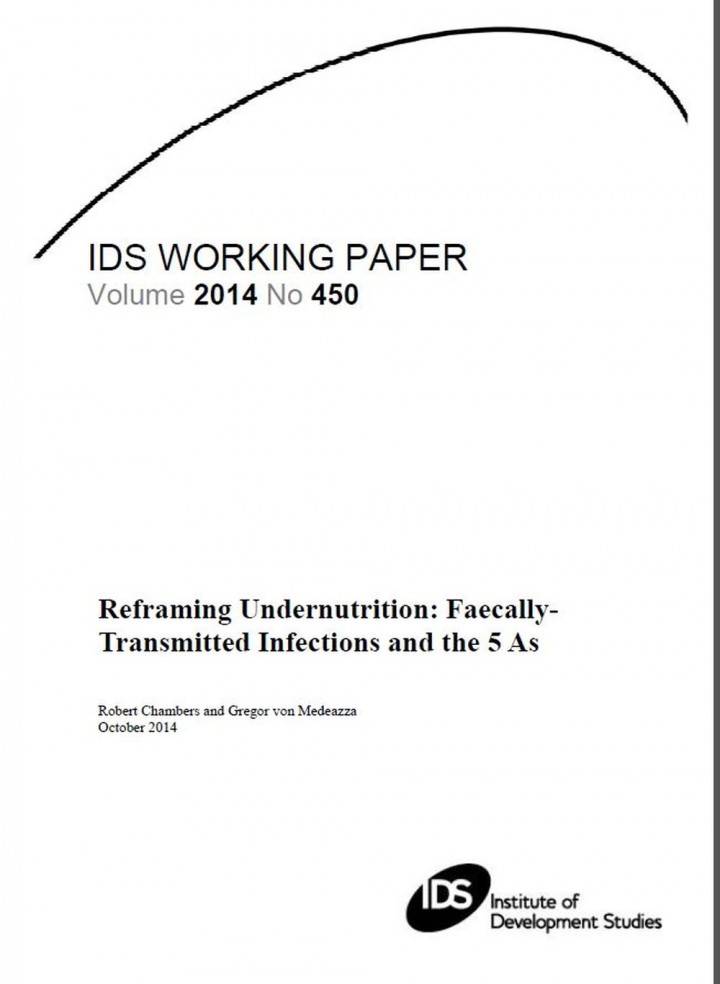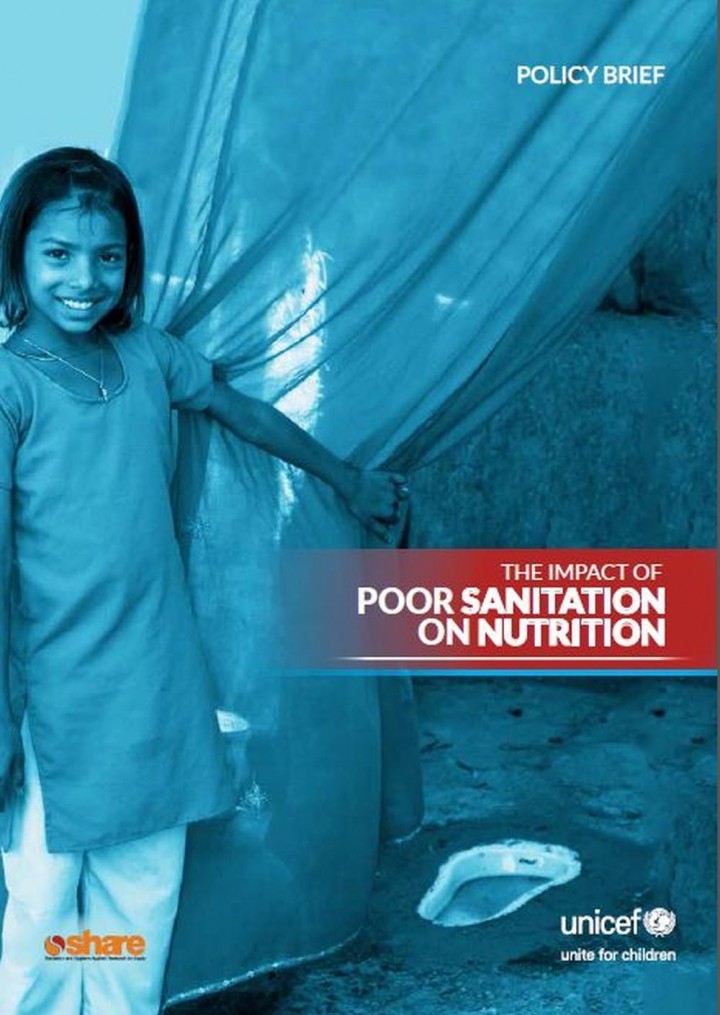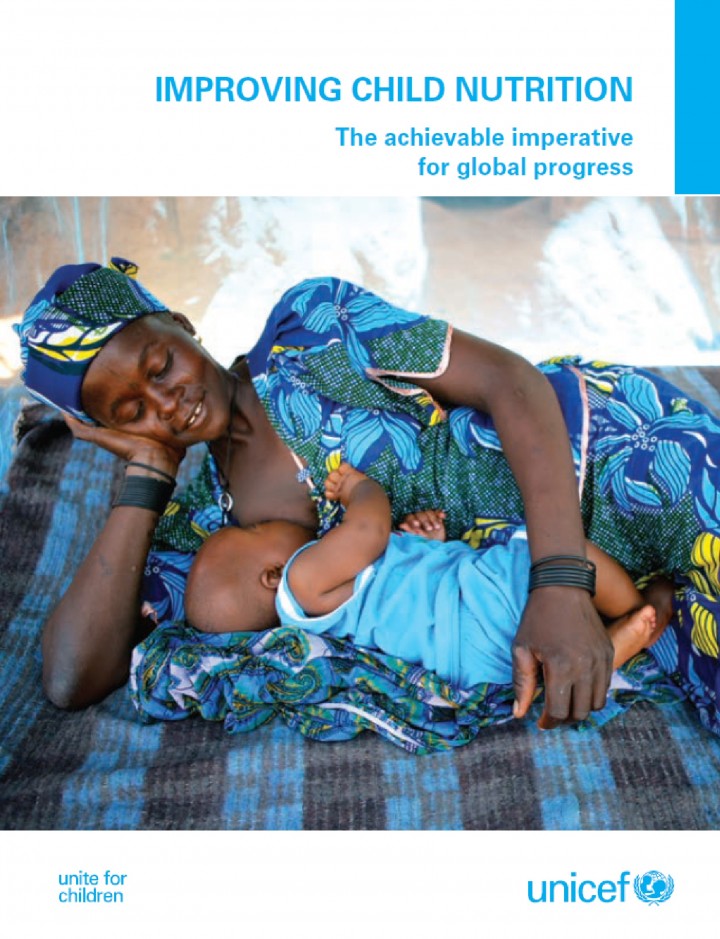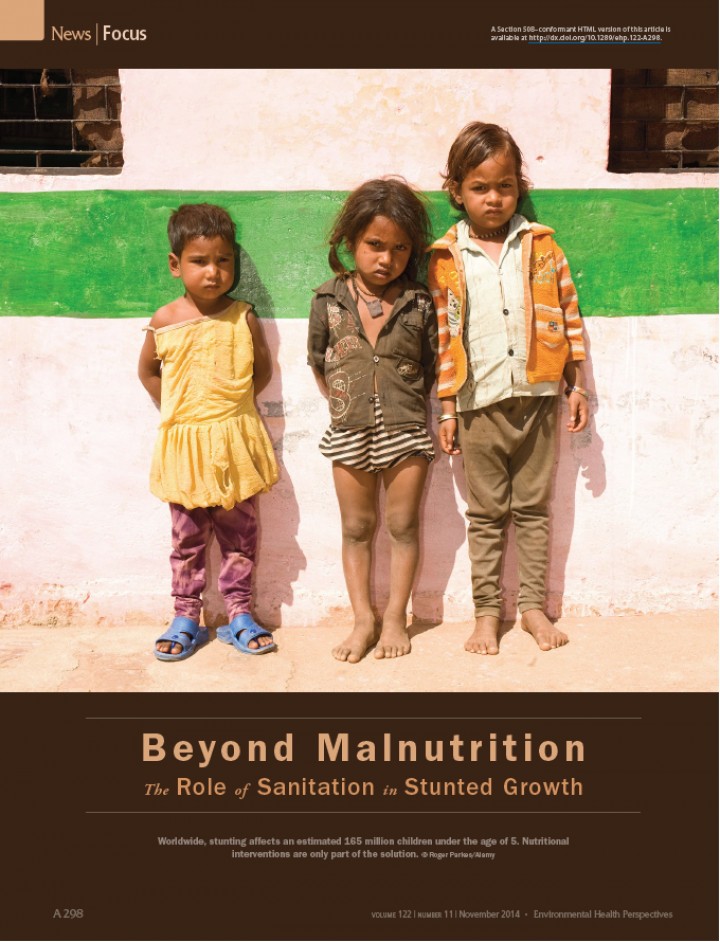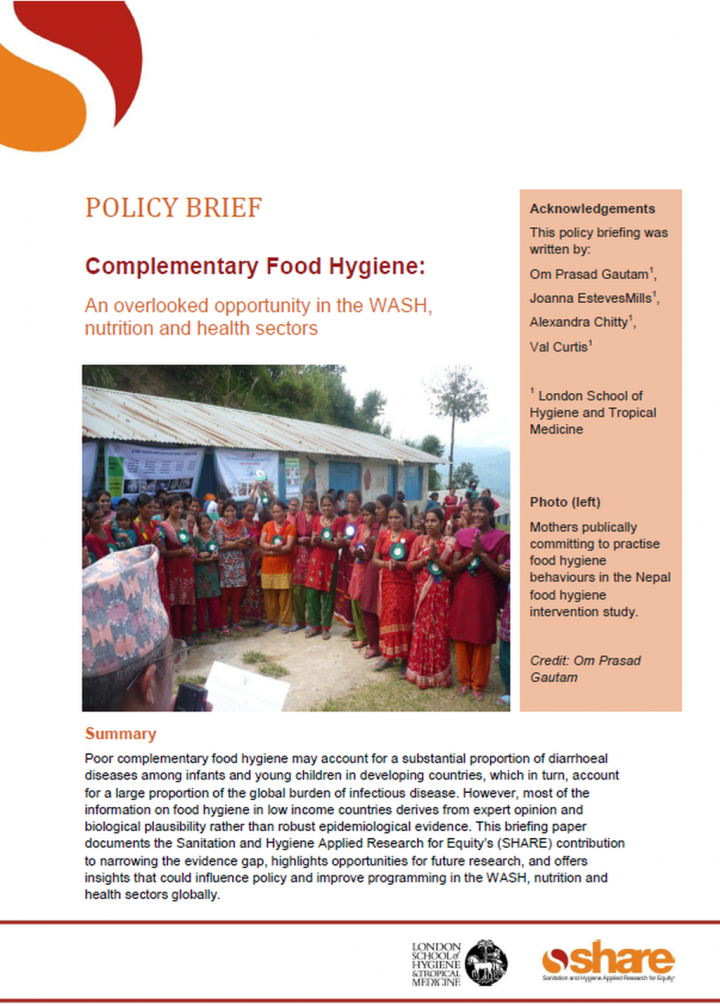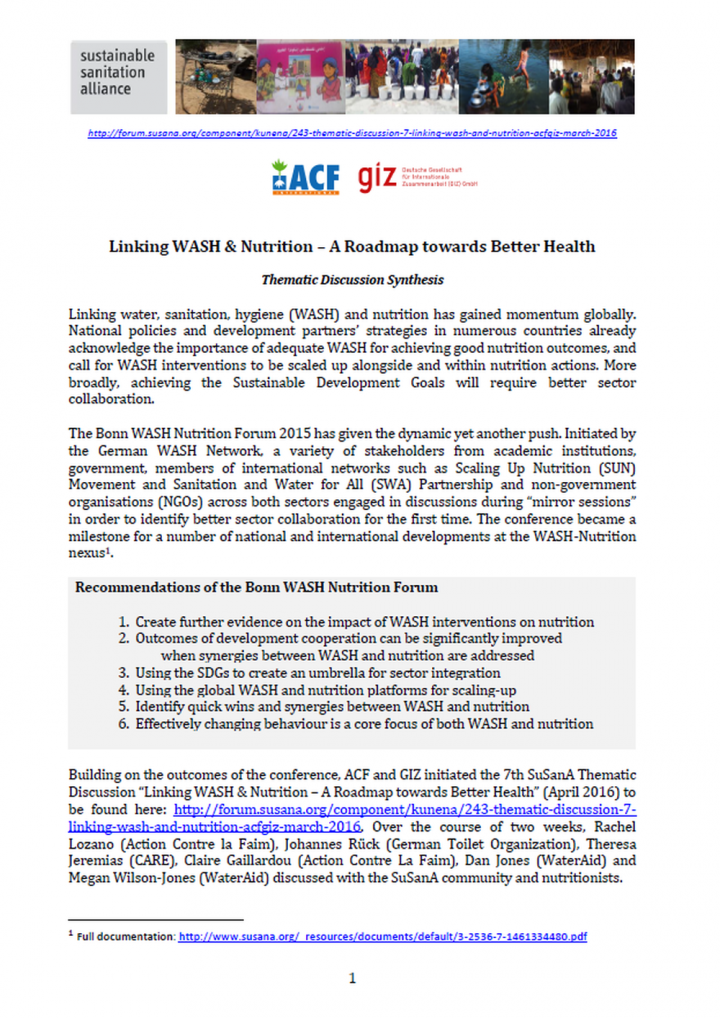Searching for information on Sanitation Workers?
The Sanitation Workers Knowledge + Learning Hub is the best source for all current news, trends, articles and updates on sanitation workers rights around the world.
This evidence paper looks at 10 areas identified collaboratively with the United Nations Children’s Fund (UNICEF) on which WASH can plausibly have a strong impact: diarrhoea, nutrition, complementary food hygiene, female psychosocial stress, violence, maternal and newborn health, menstrual hygiene management, school attendance, oral vaccine performance, and neglected tropical diseases.
Water, sanitation, and hygiene can have a profound effect on health and nutrition. A growing base of evidence on the link between sanitation, child height, and well-being has come at an opportune time, when the issue of sanitation and nutrition in developing countries has moved to the top of the post-2015 development agenda.
Undernutrition is a major cause of disease and death, affecting billions of people worldwide, especially women and children in impoverished communities. In the East Asia and Pacific (EAP) region, despite economic growth, and achievements in health and nutrition indicators, maternal and child malnutrition rates and burden remain high. Almost 28 million children are stunted in the EAP region, with …
Many studies have reported the results of interventions to reduce illness through improvements in drinking water,
sanitation facilities, and hygiene practices in less developed countries. There has, however, been no formal systematic review and meta-analysis comparing the evidence of the relative effectiveness of these interventions. A comprehensive search strategy designed to identify all …
This publication, jointly prepared by WHO, the United Nations Children’s Fund (UNICEF) and the United States Agency for International Development (USAID), summarizes the current evidence on the benefits of WASH for improving nutrition outcomes and describes how WASH interventions can be integrated into nutrition programmes. It provides practical suggestions, targeted at nutrition programme …
In this report the authors analyse the approaches governments and donors are taking to cross-integrate nutrition and water, sanitation and hygiene (WASH) within their nutrition and WASH national policies and plans. The report aims to provide a ‘recipe’, or toolkit, to stimulate debate and discussion of the options and opportunities to bring together WASH and nutrition policies and programmes.
This factsheet is the first in a series by Gereration Nutrition looking at different ways of preventing child undernutrition, and focuses on Water, Sanitation and Hygiene (WASH). It explains how WASH and Nutrition outcome for children are intimately linked and how improved WASH reduces undernutrition, thereby helping to break the cycle of poverty and transform people's lives.
A French version …
English
Impact of Water, Sanitation & Hygiene Interventions on the Nutritional and Health Status of Children under 5 years old and mothers
French
Impact des interventions du secteur Eau Assainissement et Hygiène (EAH) sur la santé et le statut nutritionnel des enfants de moins de 5 ans et des mères
This paper aims to provide some practical guidance on how water sanitation and hygiene (WASH) programmes can be more nutrition-sensitive and how nutrition programmes can incorporate more WASH aspects. It should be useful for all project staff working in nutrition and WASH programmes when WASH and/or a nutrition programme are in operation.
Water, sanitation and hygiene are essential for preventing and managing diseases including neglected tropical diseases which affect over 1 billion people among the poorest communities. Closer coordination of WASH and NTD programmes is needed to ensure WASH services are reaching the most vulnerable populations. Many WASH and NTD actors have started to work together on the planning and …
The Ministry of Education and Sports recognizes that Water, Sanitation and Hygiene (WASH) programs in schools (WinS) are a key priority area and that improved hygiene practices and a clean school environment are contributory factors to ensuring that learners can enjoy an acceptable standard of health. The need for a clean school environment is highlighted in the 2016 School WASH mapping report. …
The guidebook on how to increase nutritional impact through integration of WASH and Nutrition programmes is an operational guidebook which demonstrates the importance of both supplementing nutrition programmes with WASH activities and adapting WASH interventions to include nutritional considerations i.e. making them more nutrition-sensitive and impactful on nutrition. It has been developed to …
The dominant nutrition discourse concerns access to adequate food and its quality. It now includes food security, food rights and justice, governance and agriculture. Despite many initiatives to assure food access, and growing economies, high levels of undernutrition persist in much of Asia. It is increasingly suggested that much of this ‘Asian enigma’ can now be explained by open defecation …
With 165 million children suffering from chronic undernutrition (being stunted) and 52 million suffering from acute malnutrition (being wasted) (UNICEF et al., 2012), more concerted and cross-sectoral Action is needed. Improving water, sanitation and hygiene (WASH) in the context of nutrition programming offers one important opportunity to do this. A recent systematic review of 14 studies on WASH …
UNICEF’s 2009 report Tracking Progress on Child and Maternal Nutrition drew attention to the impact of high levels of undernutrition on child survival, growth and development and their social and economic toll on nations. It described the state of nutrition programmes worldwide and argued for improving and expanding delivery of key nutrition interventions during the critical 1,000-day window …
Researchers are exploring the possibility that poor hygiene and a lack of sanitation induce a gut disorder called environmental enteropathy (EE) that diverts energy from growth toward an ongoing fight against subclinical infection. Nutritionists are now collaborating with experts in a field known as water, sanitation, and hygiene (WASH), and their combined efforts are helping to galvanize …
Linking water, sanitation, hygiene (WASH) and nutrition has gained momentum globally. National policies and development partners’ strategies in numerous countries already acknowledge the importance of adequate WASH for achieving good nutrition outcomes, and call for WASH interventions to be scaled up alongside and within nutrition actions. More broadly, achieving the Sustainable Development …

